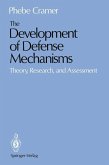The Quantification of Human Defence is to be welcomed both for its scientific merit, and as an example of international collaboration and cooperation between psychologists, psychiatrists and clinicians from many countries. The problems surrounding the analysis and assessment of psychological coping are complex, particularly with responses such as defence where many processes are not immediately accessible to conscious awareness. It is widely recognised that without reliable and quantifiable measures, little progress can be made towards understanding the role of psychological defence in human experience. The multifacet nature of defence, and the relevance of experimental and clinical psychology, psychometrics, psychodynamics, psychiatry and psychophysiology, renders it particularly resistant to investigation by a single research group. It was with these issues in mind that an interdisciplinary collaborative initiative was formulated through the Concerted Action on Quantification of Parameters for the Study of Breakdown in Human Adaptation. The Concerted Action, which is part of the Commission of the European Community's Medical and Health Research Programme, was set up in 1983 with the aim of stimulating international collaborative research into problems of quantification of stress and adaptation. More than 70 university departments and research institutions from the European Community and other European countries have participated in the programme, tackling a wide variety of topics ranging from basic biological regulatory processes to measurements in psychosocial epidemiology.
Hinweis: Dieser Artikel kann nur an eine deutsche Lieferadresse ausgeliefert werden.
Hinweis: Dieser Artikel kann nur an eine deutsche Lieferadresse ausgeliefert werden.








